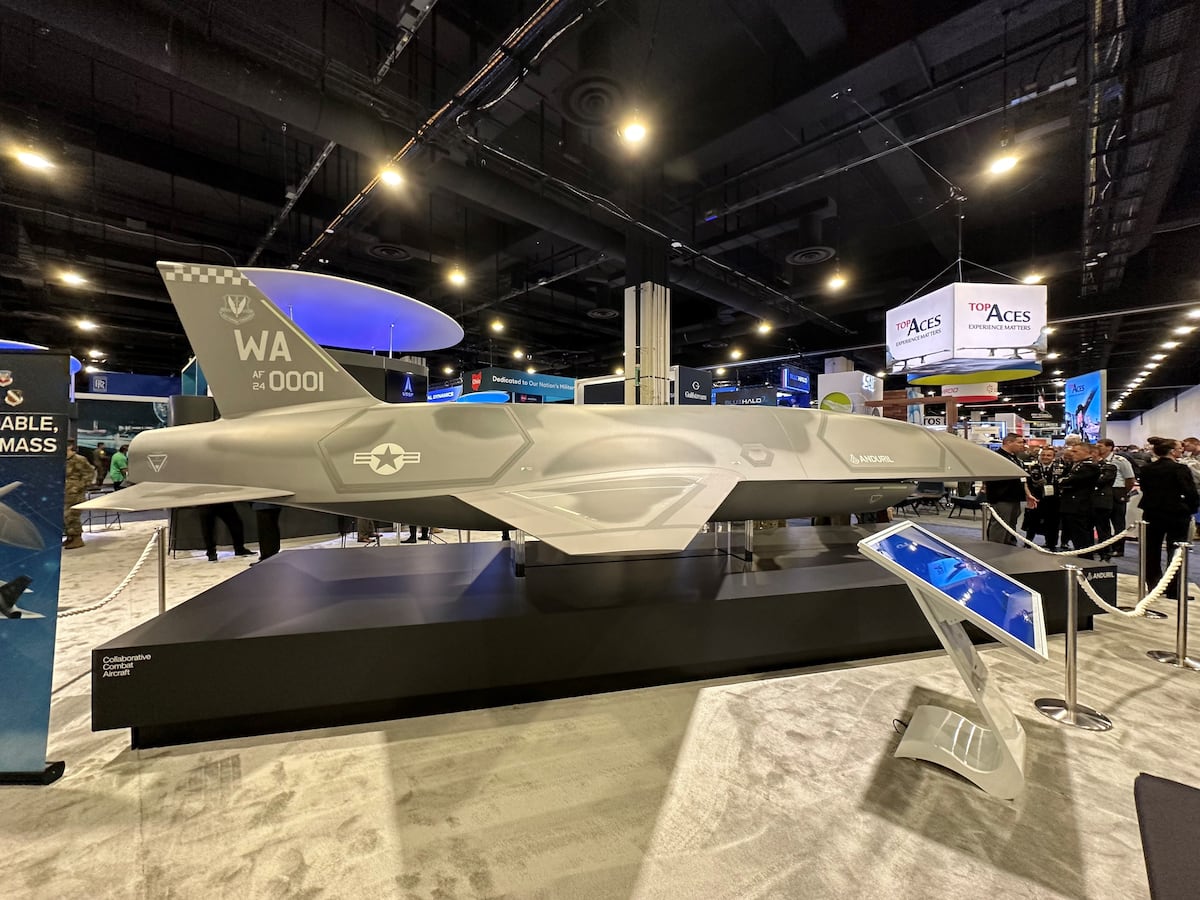GRAZ, Austria — Austria is trying to decide on a successor for its recently retired fleet of jet trainers. A leading contender showed off its aerobatic skills at the Airpower show at the Zeltweg air base this month, reinvigorating speculation on whether Vienna will turn to Czechia or Italy for a purchase.
Austria decided in recent years to withdraw its fleet of Saab 105 OE jet trainers — a variant purpose-built for the country by the Swedish manufacturer — after five decades in service. A plan for a replacement was not initially announced.
But in the past year, the tune has changed, with the country’s military leadership suggesting that plans were being prepared to find a successor after all. Last month, Austrian defense minister Klaudia Tanner said she had received an “interesting” proposal from her Italian counterparts for the joint procurement of the Leonardo M-346 advanced jet trainer.
RELATED
Under Tanner, the country’s defense forces have gone on a spending spree, procuring new helicopters, aircraft, land vehicles and air defense systems.
This latest possible purchase would fit into the recent trend of Austria buying expensive new military equipment in cooperation with other countries.
Vienna has taken a similar route in getting a successor for its C-130 Hercules large, fixed-wing transport aircraft in the form of the Brazilian C-390, bought together with the Netherlands. Similarly, 18 Leonardo AW169 helicopters are being procured jointly with Italy to replace the ancient Alouette III, which has been in service since 1967.
The M-346 played a prominent role at this year’s Airpower show, where the Italian Air Force presented the jet’s aerobatic abilities to an audience of up to 250,000 people, including representatives from Austria’s military.
Austrian pilots are already familiar with the aircraft type. Since the retirement of the Saab 105, the country’s pilots have been training on the Leonardo jet at the International Flight Training School in Sardinia, Italy.
Other training has taken place on the Eurofighter, a costly endeavor and likely driving force behind the decision to buy new dedicated trainers. In early September, the Vermont Air National Guard temporarily moved four F-35 fighters to Zeltweg to train with their Austrian counterparts through the State Partnership Program.
While the M-346 appears to be the frontrunner, officials have yet to announce a decision. Its main competitor seems to be the Czech-origin Aero L-39NG. The jet appeared in the static display at the previous Airpower show in 2022, where Filip Kulštrunk, a company vice president, pitched directly to Austrian decision-makers.
“In the case of Austria, the Czech Ministry of Defense fully supports the project and offers full government-to-government sale,” he said.
There was also talk of involving Austrian companies directly in the manufacturing process, forging longer-term industrial cooperation between the countries. Kulštrunk further relayed that Czechia was open to joint pilot training, “therefore sharing logistics and operational costs.”
Austria’s armed forces, particularly its air force, have long been plagued by insufficient funding. Cost considerations have been a driving factor behind the recently favored model of joint procurements under Defense Minister Tanner.
Similarly, budgetary constraints are also exerting pressure on its fleet of 15 Eurofighter Typhoon jets. In 2017, the country announced it would phase out older versions by 2020, though those plans appear to have been dropped indefinitely. Intermittently, there were media reports that the country might be unable to afford flying all 15 jets at once.
Last year, the government announced a €1.6 billion ($1.77 billion) upgrade package, which includes procuring new jet trainers and upgrading the Eurofighter fleet.
Linus Höller is a Europe correspondent for Defense News. He covers international security and military developments across the continent. Linus holds a degree in journalism, political science and international studies, and is currently pursuing a master’s in nonproliferation and terrorism studies.
Read the full article here








Leave a Reply